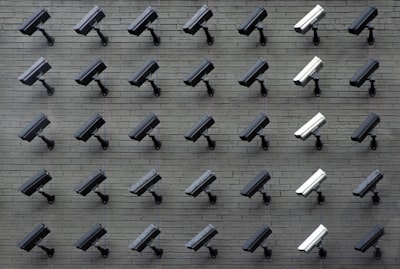Salman Rushdie, renowned magical realism author, was stabbed earlier this month. The attack happened moments before Mr. Rushdie was scheduled to give a lecture in Western New York about the United States as a haven for exiled writers. To those unfamiliar with the name, it may seem odd that an author of a fantastical genre was the target of an assassination attempt. But to those who've followed his career, it's an unsettling advancement of attacks toward freedom of speech inside of the United States.
In 1989 Iran's Ayatollah Khomeini, issued a fatwa against Mr. Rushdie for the publication of The Satanic Verses, a satirical novel about the life of the prophet Muhammad. Along with the fatwa came a $3M bounty for whoever killed Mr. Rushdie. After a few botched assassination attempts, Salman went into hiding.
He re-emerged years later, in the United States, where Salman rose to become the President of PEN America, a "nonprofit organization that works to defend and celebrate free expression in the United States and worldwide through the advancement of literature and human rights." He was frequently seen walking the streets of NYC without security. He was once again a public figure; safe, or at a minimum resigned to his death. In an interview last year when asked why he walks about the city without protection, Mr. Rushdie responded, "Oh, I have to live my life."
But Salman's life became a kind of avatar after the fatwa. He has been called a political device of Islamism, deployed by Ayatollah Khomeini to demonstrate his control over all muslims - not just those residing in Iran. He's been labeled a canary of the international free-speech, a living representation of U.S.-Iran relations, and a bellwether to global cultural wars. Whatever the fatwa made of his life, it enlarged it into something other than his own. One no longer in his control but seemingly safe.
Then, on August 14, 2022 Hadi Matar, a reclusive, ultra-religious 24 year old rushed the stage at the Chautauqua Institution in Western New York stabbing Mr. Rushdie ten times. At the time of this writing Salman Rushdie was recently removed from a ventilator, but continues to recover from extensive damage to his liver and is expected to lose an eye. Pawn. Canary. Representation. Bellwether. And now, victim.
A motive as to why Hadi Matar attempted to take the author's life in such a public manner has not been disclosed. Nasser Kanaani, the spokesman for Iran’s Foreign Ministry, has blamed Mr. Rushdie for his attack, stating that he, "exposed himself to popular outrage by insulting Islamic sanctities and crossing the red lines of 1.5 billion Muslims."
But the motive seems very clear. It is the revitalization of of Khomeini's edict to kill Mr. Rushdie, “so that no one will dare insult the sacred beliefs of Muslims henceforth. Whoever is killed in this cause will be a martyr.”
So yes, this is an attack on American soil of an author who, in utmost irony, was delivering to speak about the United States as a haven for exiled authors. It is an attack on free-speech. A demonstration of Iran's influence on U.S. operations. But, perhaps most alarmingly, this attack re-initiates a decades long race to martyrdom.
Mr. Rushdie's survival after the fatwa and his active life inside the United States in thereafter represented the nation's flourishing culture of free speech. Earlier this year, an unprecedented number of book bans in the United States has threatened the future of intellectual freedom. The attack against Mr. Rushdie last week attempted to make him into a martyr for a cause I can only imagine his opponents find laughable.
So, if it's the last laugh his opponents wish, I wish Mr. Rushdie a speedy recovery. Because in the sphere of free speech so often the last laugh belongs to them with the final word. May Salman Rushdie speak again. Not just for his own defense. But so that the symbol of his return may echo throughout the nation that declares - in its anthem - to be the land of the brave and free.
If you'd like to support Mr. Rushdie by purchasing one of his books, or read first hand one of his works that have sparked a generational debate of free speech, here's a short list of Salman Rushdie books that represents his life and near deaths.





